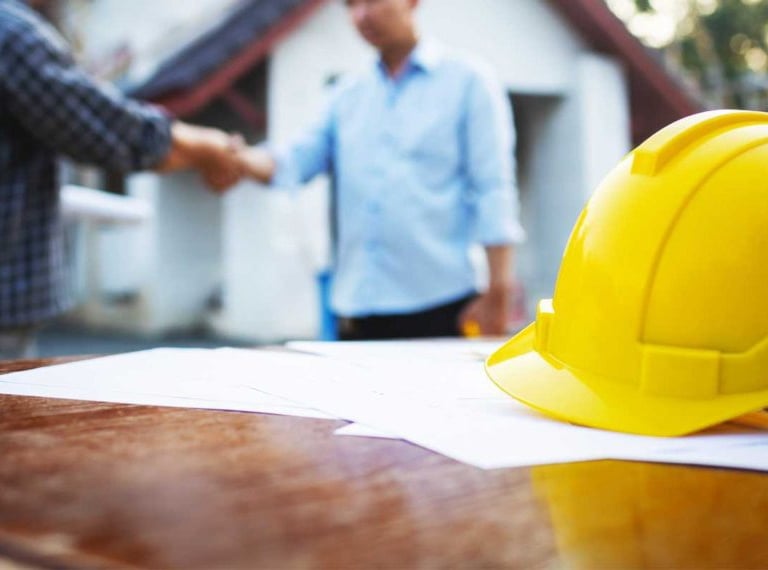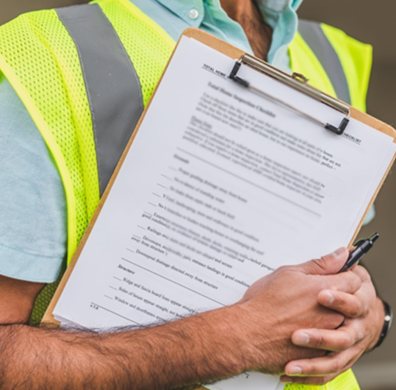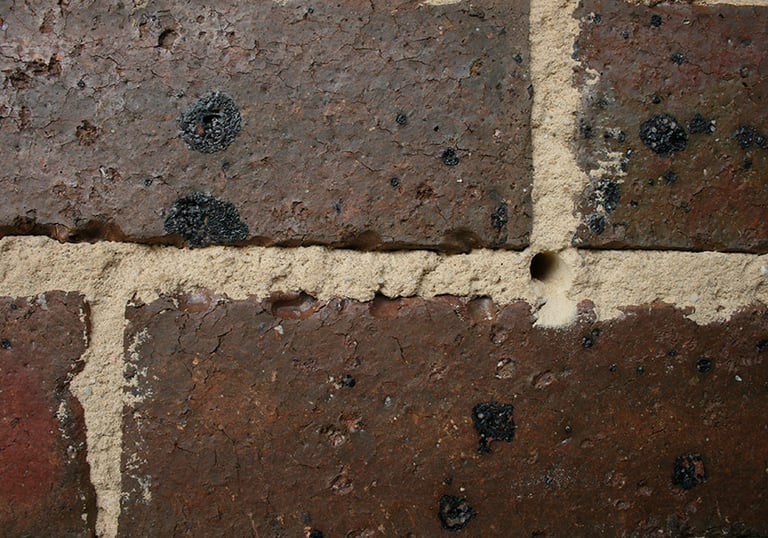Mortar Testing, Defect Reports & Remedial Repairs
We organise comprehensive mortar testing and chemical analysis services through trusted industry specialists
We deliver clear, builder-backed reports to resolve residential building disputes with confidence
Then we get the job fixed to industry standards
Chemical Analysis Process
Thorough examination of mortar composition to identify issues and support construction quality assurance.


Dispute Resolution Support
Providing insights and evidence through testing to help resolve construction disputes effectively and efficiently.


Brick & Mortar Defect Reports
Accurate, builder-backed reports identifying the root cause of mortar and brickwork issues - helping resolve disputes with clarity and confidence.


Your Home Is Too Important to Settle for Faulty Brickwork
We know how much your home means to you. It’s more than just bricks and mortar — it’s your biggest investment, your family’s future, and a dream you’ve worked hard to bring to life. So when something doesn’t look or feel right — whether it’s cracked mortar, crumbling joints, staining, or a finish that just doesn’t hold up — you deserve answers.
Too often, we’re called in only after handover, when visible defects have become impossible to ignore and tensions are already high. By that point, you’re not just trying to fix an issue — you’re facing a dispute, with the emotional and financial stress that comes with it.
Let’s change that.
As licensed builders, we specialise in brickwork and mortar defect identification and resolution. We coordinate accredited laboratory testing, inspect your home thoroughly, and provide clear, builder-backed reports you can use to get the problem fixed — whether through your builder, a warranty claim, or legal proceedings. And if needed, we can also carry out the remedial work ourselves, ensuring it's done properly and with care.
You don’t have to settle. You don’t have to fight alone. We’re here to help you protect your home, your peace of mind, and everything you’ve worked so hard for.
Expert Mortar Testing Services
Along with a team we of experts - we specialise in having mortar tested with chemical analysis, providing crucial information for residential builds and resolving disputes effectively.
We then get it fixed to the standard that will make all parties satisfied
What You’re Seeing Might Be More Serious Than You Think
We’re seeing more and more newly built homes with serious brickwork issues - often caused by poor bricklaying or harsh brick cleaning methods. What might look like a bit of crumbling mortar or surface staining can sometimes point to deeper problems with how the home was built.
In some cases, these defects have led to major structural damage - including brick walls collapsing - not just cosmetic flaws.
As licensed builders with specialised knowledge in mortar, brick staining, and cleaning practices, we know how important it is to get these things right. If they’re done wrong, it can affect both the safety and the long-term value of your home.
We’re here to help you uncover what’s really going on - and support you with expert advice, testing, and repairs if needed - so you can protect your home and your peace of mind.
The Scratch Test - The First Step
The scratch test is a recognised, on-site method used to assess the durability of mortar joints in line with the principles of AS 3700 (Masonry Structures).
It is sometimes misunderstood as simply rubbing a tool across mortar to see if it crumbles. In reality, the proper test requires a calibrated instrument that applies a controlled force to the mortar joint. This ensures the measurement is consistent, reliable, and repeatable.
The outcome is not just a visual impression — it produces a recorded index of surface hardness that can be referenced against industry expectations. At Probrik, every scratch test is fully documented and presented in a report that explains the findings and provides recommendations.
The scratch test is an excellent first step in evaluating mortar performance. In many cases, it provides sufficient clarity and reassurance. Where results indicate potential concerns, it also helps determine whether further investigation — such as laboratory chemical analysis — may be justified.
While the scratch test is a recognised and valid field assessment, it remains an indicative measure only. It should not be relied upon in isolation to confirm full compliance with Australian Standards or long-term structural performance.
Laboratory / Chemical Analysis (Confirmatory Testing)
When more certainty is required — such as during warranty claims, disputes, or tribunal proceedings — we may recommend that mortar samples undergo independent laboratory chemical analysis.
Our role is to carefully collect mortar samples on site (often taken with part of the surrounding brick) and prepare them for testing. These samples are then submitted to an independent, accredited laboratory, where they are chemically broken down to determine:
The proportions of cement, lime, and sand.
Whether additives or admixtures were included.
Whether contaminants, such as acid cleaning residues, are present.
Once the laboratory has completed its analysis, Probrik prepares a builder-backed report that clearly explains the findings in plain English and sets out practical recommendations.
Because chemical analysis is invasive and more costly, it is considered a confirmatory or last-resort option, not a routine first step. Its value lies in providing factual, unbiased evidence that can be compared with the requirements of AS 3700 (Masonry Structures) and AS 2701 (Mortar Testing), giving homeowners confidence in next steps.


How It Works


Know exactly what went wrong
Independent, builder-backed reports
Fixes handled by licensed professionals
We test it │ We report it │ We fix it
Avoid future structural or cosmetic damage
Protect your investment and resale value
One point of contact from issue to resolution
Independent, Unbiased Reporting
Whether the assessment is by scratch test or chemical analysis, our reports are completely independent and unbiased. While Probrik can also provide consulting and remedial works, the testing itself is based solely on the evidence. You can be confident that the results reflect the actual findings — not any interest in repair works.
Important Information & Disclaimer
Scratch tests provide an indexed, reportable measure of mortar durability and are recognised as a valid in-situ assessment.
Laboratory testing provides further detail but is more invasive and applies only to the samples tested.
Testing results are indicative of the samples taken and may not represent all joints across a structure.
Mortar testing does not certify overall structural adequacy, which depends on design, workmanship, and other factors.
Reports are prepared for the commissioning client only and should not be relied on by third parties without written agreement.
Acceptance of results by builders, warranty providers, or tribunals cannot be guaranteed. Independent engineering or legal advice should be obtained where required.
Note
Probrik collects and documents the samples; the analysis itself is carried out by an independent accredited laboratory.
Laboratory results apply only to the samples tested and may not represent all joints in the structure.
Chemical analysis does not, by itself, certify overall compliance or structural adequacy.
Reports are prepared for the commissioning client only and should not be relied upon by third parties without written consent.
Acceptance of results by builders, warranty providers, or tribunals cannot be guaranteed.
All findings are independent and unbiased, regardless of whether Probrik is later engaged for remedial work, in accordance with Australian Standards.
Contact Us
Still not sure what’s wrong? Talk to us — no pressure, just answers.



“When we raised concerns about the crumbling mortar, our builder’s warranty department kept delaying and downplaying it. We felt stuck, like we were being gaslit. Bringing this team in was the best decision we made. They weren’t emotional or aggressive, they were professional, thorough, and completely unbiased. Their report gave us the clarity and evidence we needed. It wasn’t about taking sides; it was about getting to the truth. Having them as the go-between made the whole process so much less stressful, and in the end, we got the repairs done without going to court.”
— Simone & Daniel K., Ryde NSW
“Our dream home turned into a nightmare when we saw orange stains running down the bricks. We had no idea what caused it or what to do. This team explained everything in plain English, organised the testing, and showed us the issue was caused by over-acid cleaning. They didn’t just diagnose the problem — they actually fixed it. We’re beyond grateful.”
— James & Alana S., Caringbah NSW
★★★★★
★★★★★
“We noticed cracks in the mortar just a few weeks after moving in, and the builder kept brushing it off as ‘normal settling.’ It didn’t feel right. These guys took us seriously, tested the mortar, and gave us a report that clearly showed the mix was wrong. They even helped organise the repairs. Honestly, they saved us thousands, and a massive headache.”
— Melissa R., Kellyville NSW
★★★★★
“We didn’t know exactly what was wrong, just that the brickwork didn’t look right and some of the mortar was already cracking. The builder wasn’t giving us straight answers, and we felt stuck. A friend recommended this team, and they were really helpful from the start. They explained things clearly, arranged proper testing, and gave us a detailed report that showed exactly what the issue was. It wasn’t about taking sides, they just gave us the facts so we could take the next steps with confidence. Professional, clear, and easy to deal with.”
— Arjun & Priya S., Marsden Park NSW
★★★★★
Testimonials
Services
Repointing, Brick Replacement, Staining Issues, Brick Consultation for Mediation, Scratch Test, Organise Mortar and Chemical Analysis Reports
Contact
Email: admin@probrik.com
Phone: 0425 333 837
© 2025 Probrik Remedial Specialists. All rights reserved.
